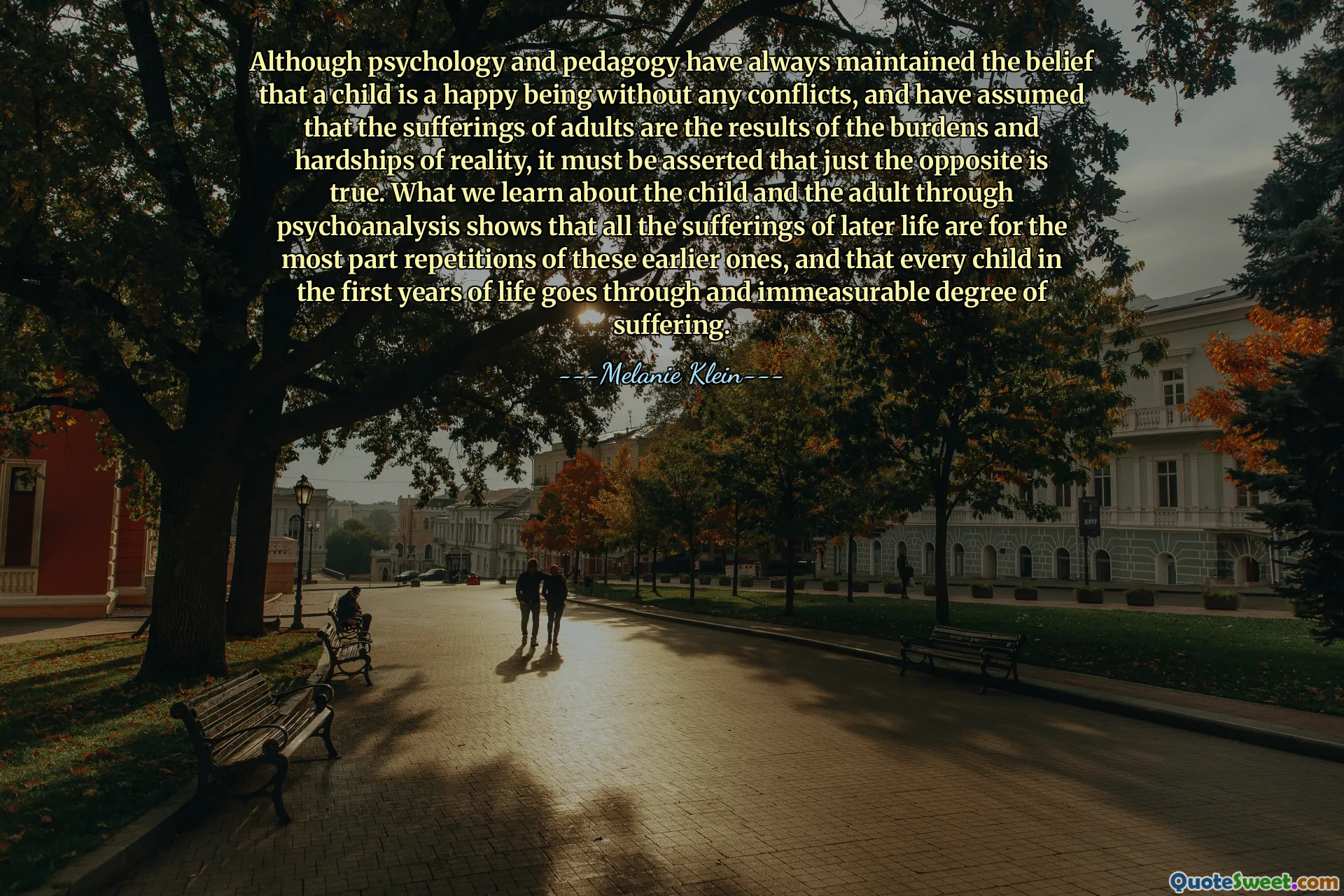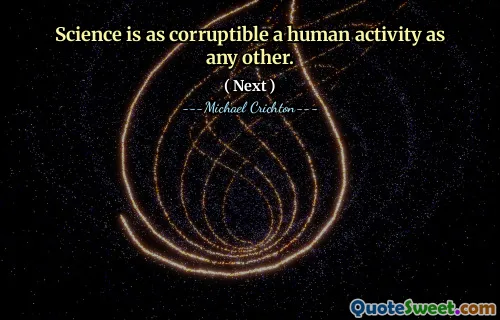
Although psychology and pedagogy have always maintained the belief that a child is a happy being without any conflicts, and have assumed that the sufferings of adults are the results of the burdens and hardships of reality, it must be asserted that just the opposite is true. What we learn about the child and the adult through psychoanalysis shows that all the sufferings of later life are for the most part repetitions of these earlier ones, and that every child in the first years of life goes through and immeasurable degree of suffering.
This quote challenges many traditional assumptions about childhood and the nature of human suffering. It suggests that childhood is far from a state of untroubled happiness; instead, it is a period marked by significant suffering and conflicts that often lay the groundwork for adult struggles. The common belief has been that children are inherently content and that adult issues are primarily due to external hardships encountered later in life. However, through psychoanalytic insight, we understand that many of the emotional patterns established in early childhood are repeated and revisited throughout life. This perspective underscores the importance of understanding early experiences, as they shape the emotional landscape of an individual well into adulthood.
Recognizing the extent of childhood suffering invites a more compassionate and nuanced view of developmental psychology. It also emphasizes the necessity of early intervention, support, and understanding to unearth and address these deep-seated conflicts before they manifest more harmfully in adult life. Moreover, this insight can foster patience and empathy in caregivers and mental health professionals, highlighting that beneath apparent outward happiness, children may be silently enduring conflicts that deserve recognition and care. The quote ultimately calls for us to reevaluate our perceptions of childhood—seeing it not as a carefree innocence but as a complex period that can carry enduring emotional burdens, shaping the human experience in profound and lasting ways.







